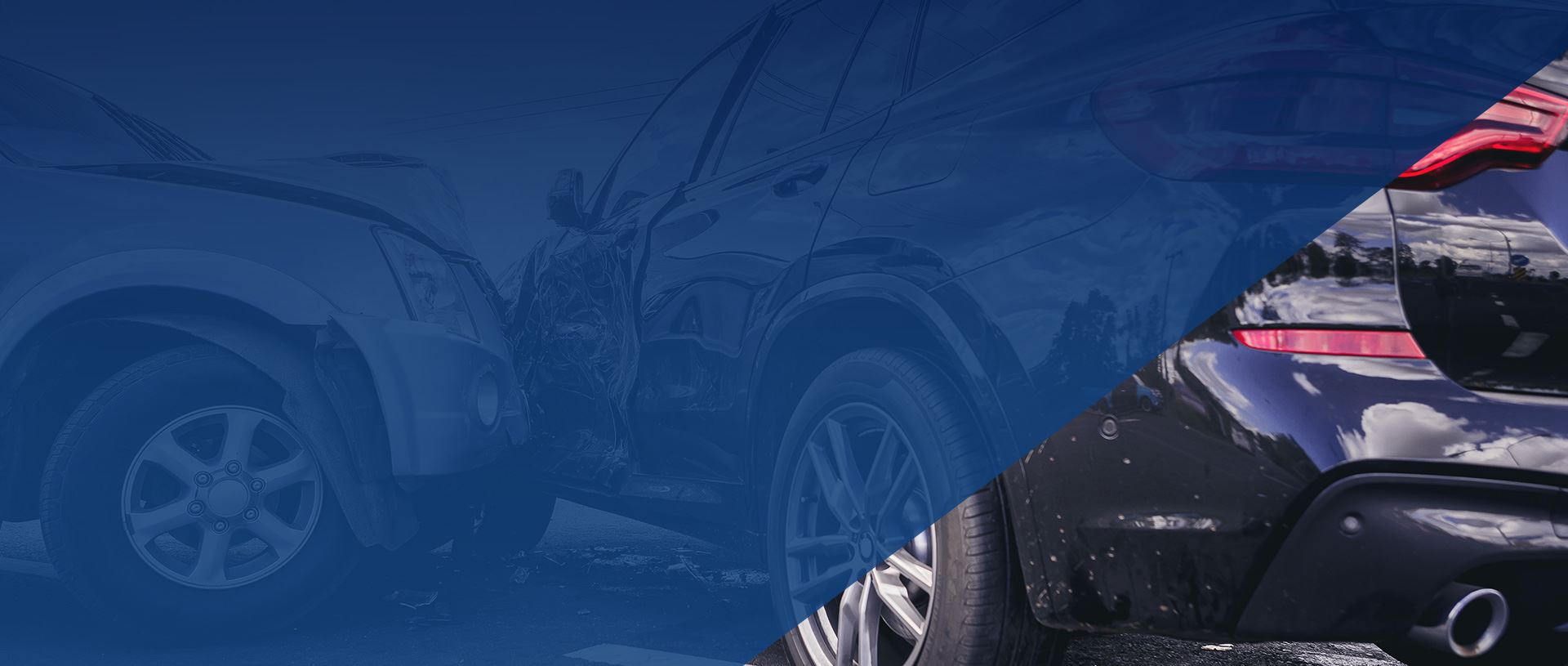
Anderson Truck Accident Lawyers in Upstate South Carolina
Truck accidents, given the sheer size and weight of these vehicles, can lead to severe injuries that profoundly impact the lives of those involved. While the spectrum of injuries can range widely, common examples include fractures, brain injuries, spinal cord injuries, and other forms of physical trauma. These injuries not only bring about significant medical challenges but also place emotional and financial burdens on the victims and their families.
When someone else is at fault for your injuries and your burdens, you deserve compensation. Whether you get that compensation, may well depend on the quality of your Anderson truck accident lawyer.
The law firm of Smith & Griffith, LLP has over 25 years of dedicated service to injured plaintiffs and their families. We have the depth of knowledge and experience necessary to navigate what can be a complex landscape in truck accident litigation. We understand the intricacies of federal and state regulations governing the trucking industry, and we leverage that understanding to protect your rights. Our goal is to get you the compensation you deserve and help you rebuild your life.
Call (864) 477-7395 or contact us online today to schedule a free consultation with a truck accident lawyer near you.
Understanding the Unique Aspects of Truck Accident Litigation
In the realm of personal injury law, certain foundational principles apply universally, such as the necessity to establish negligence. However, litigation involving truck accidents often takes a unique path from standard auto accident cases. There is a complex layer of law and regulatory compliance that attorneys must know how to navigate.
Consider the following nuances in truck accident lawsuits:
- The responsibility for an accident may not rest on the truck driver’s shoulders. For instance, if a trucking firm employed an individual lacking the requisite qualifications and entrusted them with an 18-wheeler, the firm itself may become the focal point of legal action.
- This complexity extends to the practices of trucking companies, who typically vet their new recruits with their insurance providers to ensure due diligence. What if it was the insurer who green-lit an inadequately qualified driver? This scenario shifts the legal spotlight onto the insurer.
- Determining the exact cause of the accident further complicates matters. Should cargo dislodge from the truck, the liability may fall upon the party responsible for securing the load.
- Regulatory compliance regarding driving hours also plays a critical role. Accidents occurring beyond permitted driving limits necessitate an investigation into who bears the blame. Did the driver push themselves too far voluntarily? Or did the scheduler give the driver a timetable that could only be met by violating regulations? Your attorney needs to find out.
- Equipment or mechanical failures introduce another layer of complexity, potentially implicating maintenance service providers in the litigation.
- Furthermore, the involvement of a third party, whose reckless driving could be the primary cause of the accident, adds another dimension. Given the limited maneuverability of large trucks compared to smaller vehicles, the actions of another driver entirely could be the reason for the accident.
Identifying the correct defendant is crucial for a successful lawsuit. It is insufficient for a court to merely empathize with the plaintiff—the court must be convinced that the defendant is directly responsible for the plaintiff’s injuries. Misidentifying the liable party could jeopardize the entire effort at getting fair compensation—or any compensation at all.
Properly establishing liability is multifaceted. It hinges on the meticulous gathering and analysis of evidence. This process, known as discovery, is where both plaintiffs and defendants can request documentation and other records pertinent to the case. Understanding what to look for is absolutely vital. Clients who come to law firm of Smith & Griffith, LLP can be confident that our experienced Anderson truck accident lawyers know what they’re doing.
Common Causes of Truck Accidents
Truck accidents can occur for many reasons, often involving negligence by truck drivers, trucking companies, or other parties. Common causes of accidents include:
- Driver Fatigue: Long hours on the road can lead to exhaustion and impaired decision-making.
- Distracted Driving: Texting, phone use, or other distractions can cause catastrophic accidents.
- Improper Maintenance: Failing to maintain brakes, tires, and other critical components can result in mechanical failures.
- Overloaded Trucks: Exceeding weight limits can make trucks harder to control.
- Driving Under the Influence: Alcohol or drug use by truck drivers significantly increases the risk of accidents.
- Reckless Driving: Speeding, tailgating, or failing to follow traffic laws endangers everyone on the road.
Common Injuries in Truck Accidents and Their Long-Term Effects
Truck accidents can lead to severe injuries that often require extensive medical treatment and rehabilitation. Understanding the types of injuries commonly sustained in these accidents can help you recognize the importance of legal representation and the potential compensation you may be entitled to.
Some of the most frequent injuries from truck accidents include:
- Traumatic Brain Injuries (TBI): These injuries can lead to long-term cognitive impairments, affecting memory, concentration, and emotional stability.
- Spinal Cord Injuries: Damage to the spinal cord can result in paralysis or chronic pain, requiring ongoing medical care and support.
- Fractures and Broken Bones: These injuries can necessitate surgery and lengthy recovery periods, impacting your ability to work and enjoy daily activities.
- Internal Injuries: Injuries to organs can be life-threatening and may require emergency treatment and long-term monitoring.
- Soft Tissue Injuries: Whiplash and other soft tissue injuries can lead to chronic pain and discomfort, often requiring physical therapy.
At Smith & Griffith, LLP, we understand the complexities surrounding truck accident injuries and their long-term implications. Our dedicated team of Anderson truck accident lawyers are here to provide you with the support you need to navigate the legal process and secure the compensation that reflects the true impact of your injuries. Don’t hesitate to reach out for a consultation to discuss your case and explore your options.
Federal Regulations Impacting Truck Accident Cases
Truck accidents often involve vehicles engaged in interstate commerce, thereby bringing federal regulations into play – notably the Federal Motor Carrier Safety Act (FMCSA). This act outlines a comprehensive set of rules governing the trucking industry, including stringent requirements on driver working hours, vehicle maintenance, and cargo loading standards.
Our Anderson trucking accident attorneys are well-versed in the FMCSA. By closely examining the details required by these regulations, we can at least enhance the plaintiff’s chances of securing a favorable outcome.
The process of proving liability encompasses a comprehensive approach that includes analyzing the accident’s circumstances, reviewing police reports and medical records, and possibly leveraging expert testimonies. Each piece of evidence serves to construct a narrative where we seek to substantiate the claim of negligence or misconduct by the defendant.
Why Choose Us for Your South Carolina Truck Accident Case
Smith & Griffith, LLP believes in a personalized approach to the law. Every client’s journey is unique. That’s why we dedicate ourselves to truly getting to know you and what matters most in your life and for your recovery. Our commitment goes beyond simply securing a settlement that “gets you by.” We aim to understand the full extent of your injuries and the impact they have on your life. We believe this is an important part of facilitating your recovery.
Our team’s roots run deep in upstate South Carolina, reflecting our strong bond with the community we serve.
At Smith & Griffith, LLP, you’re not just a case number, you’re part of our community, and we’re here to stand by you every step of the way. Call (864) 477-7395 today.
Truck Accident FAQs
1. Who can be held liable for a truck accident?
Liability in truck accidents can extend beyond the truck driver to include the trucking company, cargo loaders, manufacturers of defective truck parts, or even third-party maintenance providers.
2. What compensation can I recover after a truck accident?
You may be entitled to compensation for medical expenses, lost wages, pain and suffering, property damage, and, in some cases, punitive damages.
3. How long do I have to file a truck accident claim in South Carolina?
South Carolina’s statute of limitations for personal injury claims is three years from the date of the accident. Acting quickly ensures critical evidence is preserved.
4. What if I was partially at fault for the accident?
South Carolina follows a comparative negligence rule. As long as you are less than 51% at fault, you can still recover compensation, though your award may be reduced based on your level of fault.
5. What evidence is crucial in a truck accident case?
Key evidence includes accident scene photos, black box data from the truck, driver logs, maintenance records, witness statements, and expert analysis.
6. Can I file a wrongful death claim if I lost a loved one in a truck accident?
Yes, if a loved one was fatally injured in a truck accident, you may be able to pursue a wrongful death claim for funeral expenses, loss of financial support, and emotional suffering.
